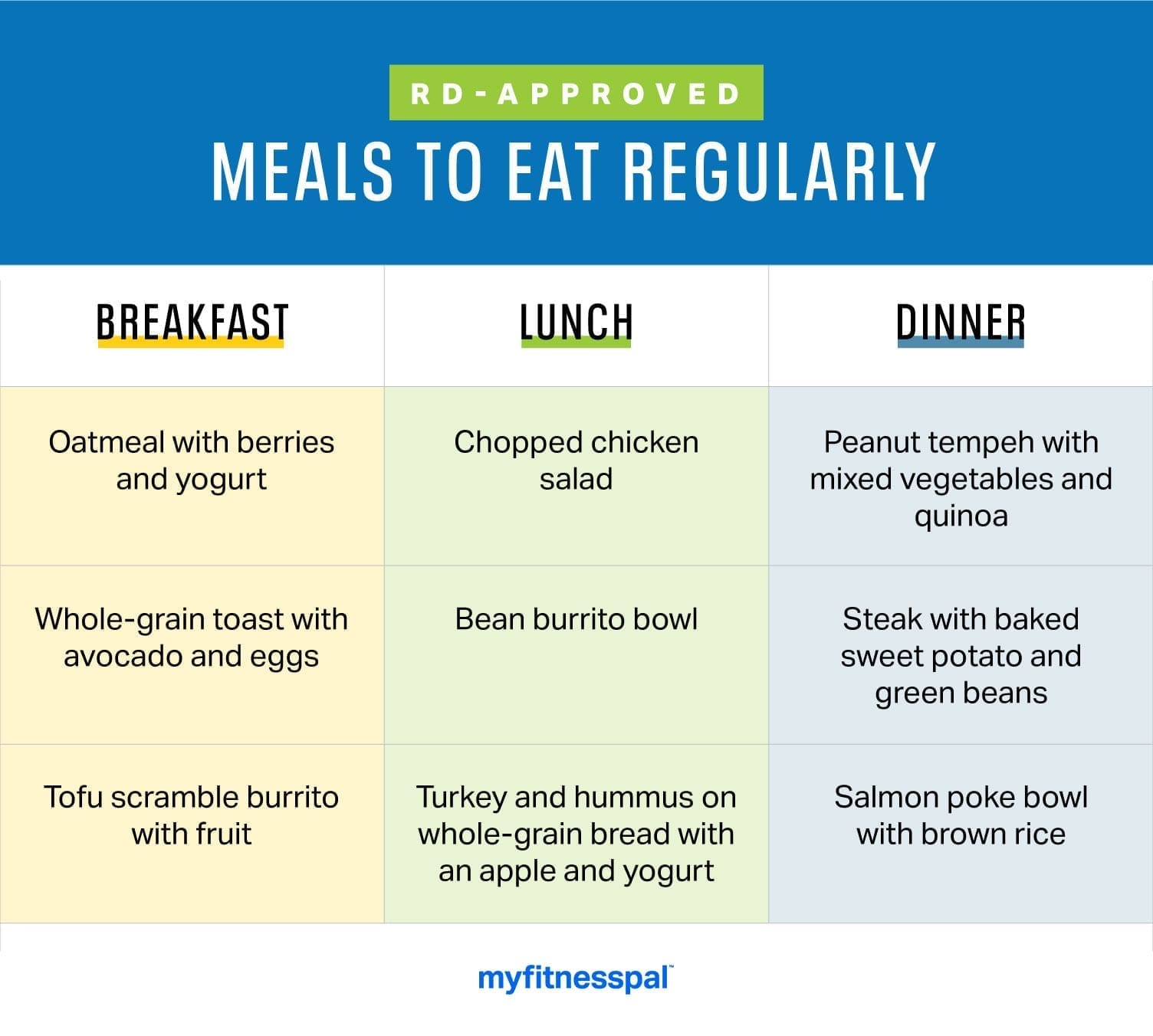
Athletes are inundated with information on how to train and recover; they don’t need the added pressure of dietary information overload. Food choices affect performance, but too often we get caught up in looking for the magic bullet and honing in on specifics only to ignore the big picture. The truth is, the majority of people seeking fitness gains benefit from backing off a bit and getting back to basics — for example: Consuming a routine diet that includes a variety of colorful, nutritious whole foods.
1
TRACK FOR ENERGY INTAKE
Energy intake relative to exercise energy expenditure is known as energy availability. It could be tempting to up exercise without increasing the fuel to support the effort in order to get lean. However, too many athletes succumb to over-restriction and caloric deficits, which results in the body being forced to use lean tissue as fuel. Ultimately, this hinders performance and body composition.
Instead of micromanaging macronutrient breakdown, milligrams of a specific vitamin, or supplement intake, aim to have a daily balance of calories you consume versus burn. Ensuring your overall energy needs are being met is a huge game changer in how you feel and consequently how you perform.
2
REDUCE THE JUNK
All foods can fit into an overall healthy diet, however, consuming foods low in nutrient density is like loading up on the ‘junk miles’ in your workouts. It’s fuel, but it isn’t making you any better. Aim to reduce the amount of low nutrient density foods consumed day to day. The best athletes indulge occasionally, but know 80% of their intake should be high-quality calories — Think: complex carbohydrates, plant proteins, omega and unsaturated fatty acids and colorful produce — to best fuel their health and performance needs. Skipping packaged foods is the best way to start eliminating poor quality foods.
3
BUILD YOUR PLATE
A great place to start simplifying your diet is to focus on balance, and the plate method is a great example of how to do this. Instead of measuring or weighing your food, you can use the plate’s template to add protein, carbohydrates (grains or starchy vegetables) and produce, in the designated areas. This method focuses on balance — having different food types represented — and since each food type has its place, portion control comes naturally. It also provides some structure without being overbearing or restrictive. Start with a simple meal of grilled chicken, sweet potato and a salad drizzled with vinaigrette, before exploring more adventurous meals.
4
STICK TO A ROUTINE
Make day-to-day eating easy by sticking to a handful of high-quality meal or ingredient staples. Many professional and elite athletes eat the same meals and reach for the same snacks repeatedly. This helps reduce decision fatigue and stress, factors that increase low level inflammation and potential weight gain — the opposite of what most athletes want.
Make a list of three meals you fall back on for breakfast, lunch and dinner. Rotating the same few meals makes shopping and meal prep easy.

THE BOTTOM LINE
As seen in The Athlete’s Food Pyramid, working on a simple foundation of quality foods is the best thing you can do to fuel performance and health.The Bottom Line
Make progress on nutrition and fitness goals with our “Plans” feature in the MyFitnessPal app for daily coaching and easy-to-follow tasks.



